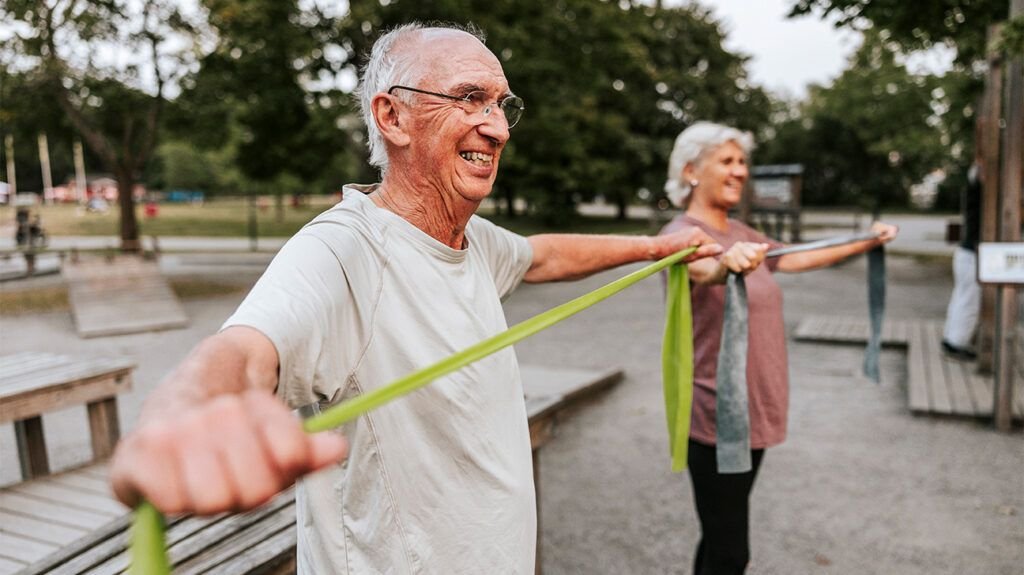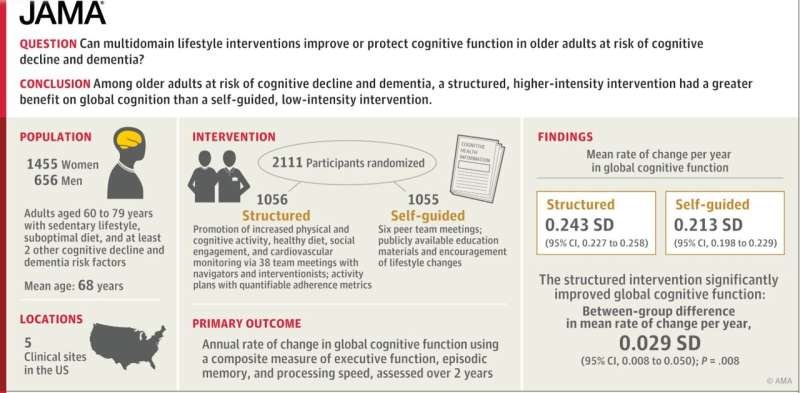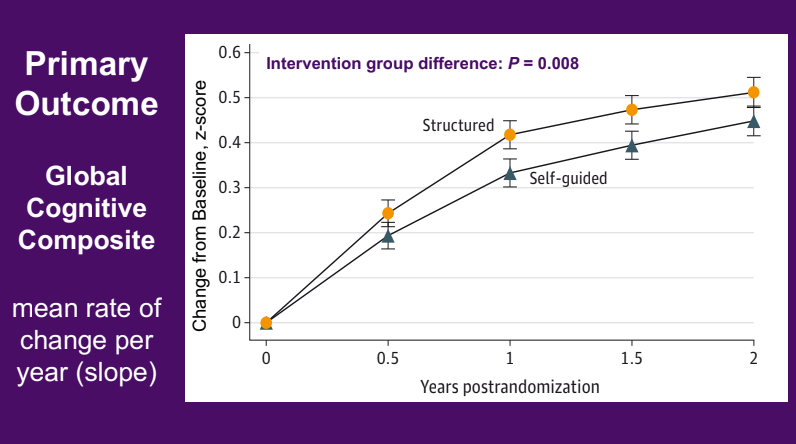Although her grandfather had dementia when he died, Kristin Richardson hadn’t worried much about her brain until a lab test revealed that she was positive for APOE4, a gene that has been linked to a higher risk of developing Alzheimer’s disease. That was seven and a half years ago.
Richardson, now 51, remembers crying when she got the news. “I was terrified,” she said. “It’s a horrible, horrible disease with no cure.”
So Richardson, a business owner in Richmond, Virginia, decided to make whatever changes she could to reduce her risk of the disease. “I do what I can to get enough sleep. I keep active. I try to eat well and maintain a healthy weight, and I’m always working my brain to learn new things,” she said.

Two new studies being presented at the Alzheimer’s Association International Conference meeting Monday in Toronto may give some hope to Richardson and others who carry a genetic risk for the disease. Both new studies build on previous evidence that diet, certain brain training exercises and physical activity can delay the loss of memory and slow the decline of other cognitive abilities.
One study looked at the impact of walking on 2,985 Black and white older adults who were tested for APOE status and were followed for 10 years. Each year, the participants were questioned about the amount of walking they did, and at multiple points during the follow-up period, their cognitive status was evaluated with standardized exams.
Overall, participants with the APOE4 gene mutation showed steeper declines in cognition compared with those with other forms of the gene that don’t raise the risk of Alzheimer’s. While walking appeared to have a protective effect on all the participants, it was strongest among those with APOE4.
The risk of developing Alzheimer’s among those with two copies of APOE4 is 12 times that of women with none and four times that of men with none, said the study’s senior author, Cindy Barha, an assistant professor of neuroscience at the University of Calgary and Canada Research chair in neuroscience, brain health and exercise.
That changed significantly if people walked. Overall, women benefited more.
A 10% higher amount of self-reported walking was associated with a 4.7% increase in complex thinking performance over time in women and a 2.6% increase in men.
Among APOE4 carriers, men appeared to benefit more. A 10% higher amount of self-reported walking was associated with an 8.5% increase in global cognitive performance over time in women and a 12% increase in men. That was a surprise to the researchers, who expected that women would continue to benefit more.
Walking seems to keep brains healthier by pumping up levels of brain-derived neurotrophic factor (BDNF), a protein that’s known to support the health of brain cells, Barha said. Other proteins in the brain may be involved, as well.
“BDNF is like fertilizer for your brain that is naturally produced, especially when you are being physically active, such as when you are walking,” Barha said. “It helps brain cells survive, grow and form stronger connections; this supports memory, learning and mood, especially in the hippocampus, which is the brain’s memory center.”
A limitation of the study is that it didn’t track how fast or how frequently the participants walked.
Dementia risk modified through lifestyle
The second international study, led by researchers in Finland, found that a combination of lifestyle modifications could also benefit people with the APOE4 variation more than those with other mutations.
The study included 2,469 participants from France, Japan and Finland who were randomly assigned to receive multi-focus lifestyle interventions or not. Among the participants were 709 APOE4 carriers.
Included in the lifestyle modifications were:
- Cognitive training, either computer-based or with paper and pencil.
- Physical activity, including group-based physical group exercise sessions lasting 90 minutes and an exercise program supervised by physiotherapists at the gym.
- Dietary counseling.
A preliminary analysis revealed that the benefit of the intervention was greater among the APOE4 carriers.
Study co-author Jenni Lehtisalo, a research fellow at the Finnish Institute for Health and Welfare, said the main takeaway is that the risk for dementia, even in people with genetic predisposition, can be modified through lifestyle.
There was about a fourfold greater benefit in those who were positive for APOE4, said Lehtisalo, who is also a visiting researcher at the University of Eastern Finland.
The hope is that future research will reveal whether there is a specific window of time during which the modifications are more effective, she said.
Dr. Cynthia Boyd, a professor of medicine and director of the division of geriatric medicine and gerontology at Johns Hopkins Medicine, said the studies show “there is something concrete we can all do to decrease the risk of cognitive decline.”
“Walking and other lifestyle modifications can be protective for the brain,” said Boyd, who wasn’t involved in the new research.
Adam Brickman, a professor of neuropsychology at Columbia University Vagelos College of Physicians and Surgeons, said that to optimize brain and cognitive health, it’s a good idea for everyone, regardless of genetic risk, to engage in physical activity, maintain a good diet and monitor other risk factors linked to dementia.
“Sometimes initiating new healthy behaviors is difficult for people,” Brickman said. “Knowledge of being at increased risk for Alzheimer’s disease by virtue of having an APOE4 allele may help inspire or motivate lifestyle changes to mitigate that risk.”







